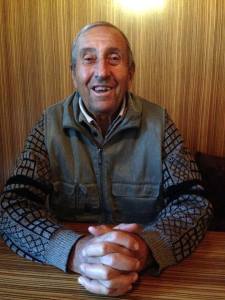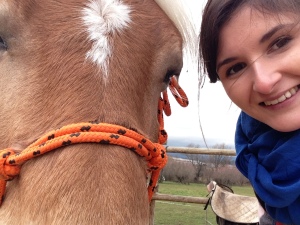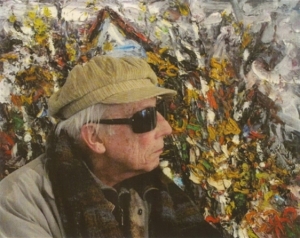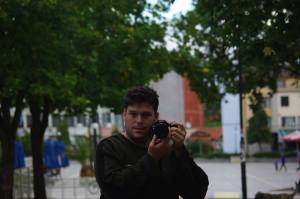The early afternoon’s temperature hovered around the chilly 5 °C. Nevertheless, animated chatter and hearty laughter reigned on Blagoevgrad’s main street. Bundled up in winter coats, people zigzagged from one store to the other. Christmas was just a couple of weeks away.
Absorbed in the process of capturing the festive mood on tape, I did not notice when a middle-aged man, clad in a frayed blue jacket, had approached me. I turned around. My reaction was to shake my head and say I did not have any coins even before the black -bearded, tousled-haired man opened his mouth to speak, exposing a gap where his top left front tooth had once stood.
“Would you buy me some bread,” said the wizen-faced man, pulling his cracked lips in a shy smile. I looked into his dark hazel eyes, still hesitant how to react. “Wait for me here,” I finally replied.
A couple of minutes later I handed him a loaf of sliced bread. He thanked me, said he will mention me in his prayer to God that night and wished me happy holidays.
I quickly returned the wishes. As I watched the man dissolve in the crowd I wondered how happy the holidays would actually be for him.
That chance encounter unleashed a stream of thoughts that flowed in different directions. I pondered on the unpredictability of fate, on the ability, perseverance and courage, or lack of such, to walk life’s swirling path, on the footprints others leave on that path. Some of these footprints dig deep dark pit holes, while others nurture blossoming gardens.
For four months now I have been living in one such heavenly garden thanks to several affable and hearty individuals, who turned the semester into a memorable and enriching journey.
Everything started that breeze mid-September morning. Georgi Angelov bent and lined his cloth bags, bulging with apples and grapes, on the alley. When he rose up, he smiled broadly and quipped that his office was set for an interview.
Georgi’s thrilling story how he met communist Bulgaria leader Todor Zhivkov to plead him to examine his daughter’s university admission revocation revealed his courage, love and dedication to his family.
“I went to the guards at his [Zhivkov] residence and told them I had an appointment with Jivkov. They let me in,” Georgi said. “Once Jivkov heard the name of governor Aleksiev, he decided to meet me. They were very close friend. So there I was, in Jivkov’s office. I told him about the revocation of my daughter’s university admission and he assured me he will get her back in.”
Georgi taught me that boundaries crumble down when it comes to caring and providing for a loving family. Thank you, Georgi.
A week later, I sat in a neat, white office watching Pavel Djunev’s hazel eyes follow the print on a computer’s screen. His left index finger constantly clicked on the tiny, black mouse.
Pavel lives his dream. In 2009, after several years of obstacles, he finally launched a news website, which has now grown into the biggest media outlet in Blagoevgrad.
“When it was time to think about the realization of the idea [the news website], or in other words, to figure out how to finance it, we turned to local companies for support, offering them to advertise with us. But they told us: ‘Are you crazy? We have our clients and credibility, we cannot advertise on the Internet,’” Pavel said.
Pavel taught me to follow my dreams, no matter how thorny the road toward their fulfillment might be. Thank you, Pavel.
October arrived with the smell of ink and the buzz of a tattoo gun. Holed up in a cozy, red-painted studio, Yulian Hristov has brewed his adolescent obsession with tattoos into ever-lasting love.
“ Tattooing is a passion, not a profession,” Yuli said. “When you love what you do, you never have to deal with exhaustion or boredom.”
Yuli urged me to discover what I truly love and unwearyingly cling to it. Thank you, Yuli.
November’s temperatures dropped to the freezing 0 C. It felt like all the heat has retreated to Krasi’s bakery.
Cheerful and agile Krasi bakes the wee hours away six days a week.
“As a student I started working in a sweets shop as a saleswoman to earn my own money and not constantly rely on my mom’s,” Krasi said. Before long, however, she migrated from the counter to the kitchen, where she discovered her love for baking.
Once the bakery opens at 2 am, Krasi sprints from the kitchen to the counter and back to fetch mouth-watering pastries for the throngs of hungry customers. Huge aluminum pans of banitcas, dzhumaikas, pizzas and croissants are fast depleted.
Krasi taught me that the best way to enrich ourselves is to care for others. Thank you, Krasi.
The aroma of Krasi’s bakery morphed into the earthy smell of “Dvorene” horse stables.
The late-November’s weekend I spent in “Dvorene” took me back to my childhood, when my family used to raise horses.
Horses have been an inseparable part of the lives of Dvorene’s horseback riding instructors, Nasko, Niki and Mitko, as well.
“My grandpa had a horse,” said Nasko, echoing the stories of the other two. “However, what my friends and I used to
do was to ‘steal’ the neighbors’ horses from the fields around town, ride them all day long and return them at dusk.”
Thank you, Niki, Mitko and Nasko, for reminding me that life is meant to be simple, filled with unconditional love toward every breathing creature.
And here I am now, mid-December, thinking that I owe a giant “Thank you” to so many other people, whose faces I have probably never seen.
Thank you, dear readers, for being with me all that time.
May your Christmas be abundant with touching moments of love and joy. May the New Year kick off in an unforgettable way!
See you soon, dear readers!











